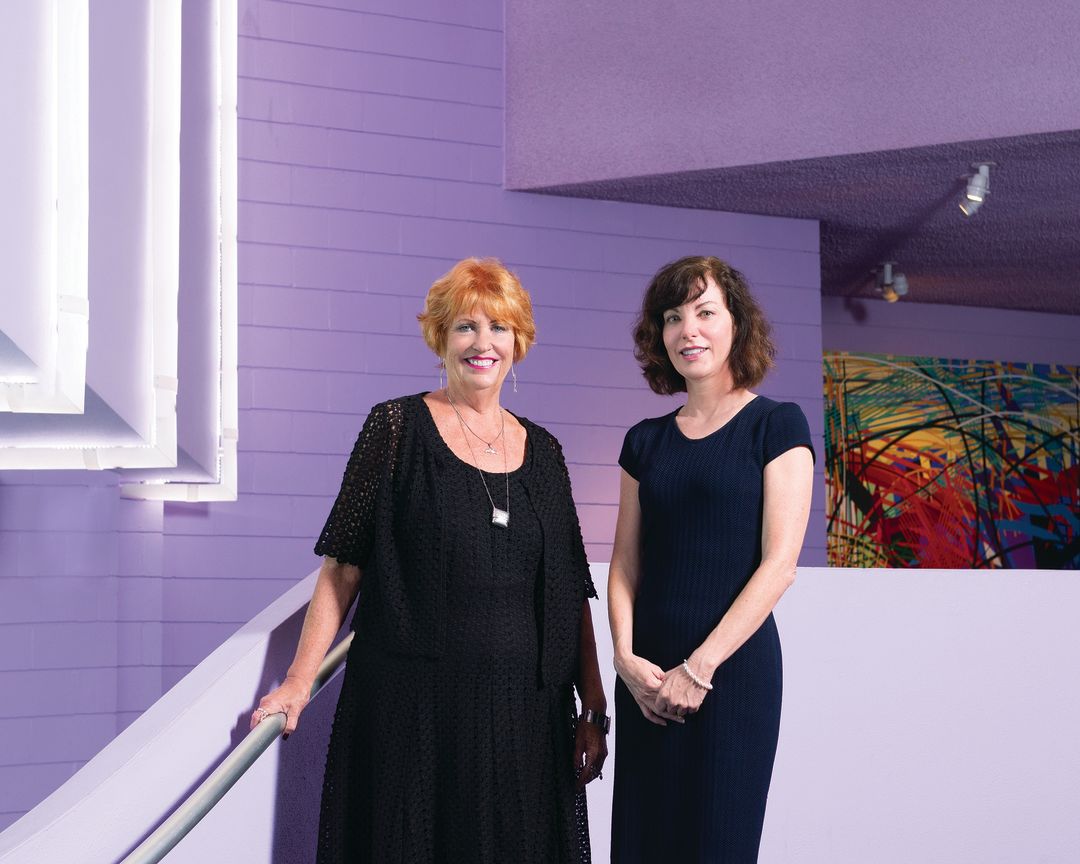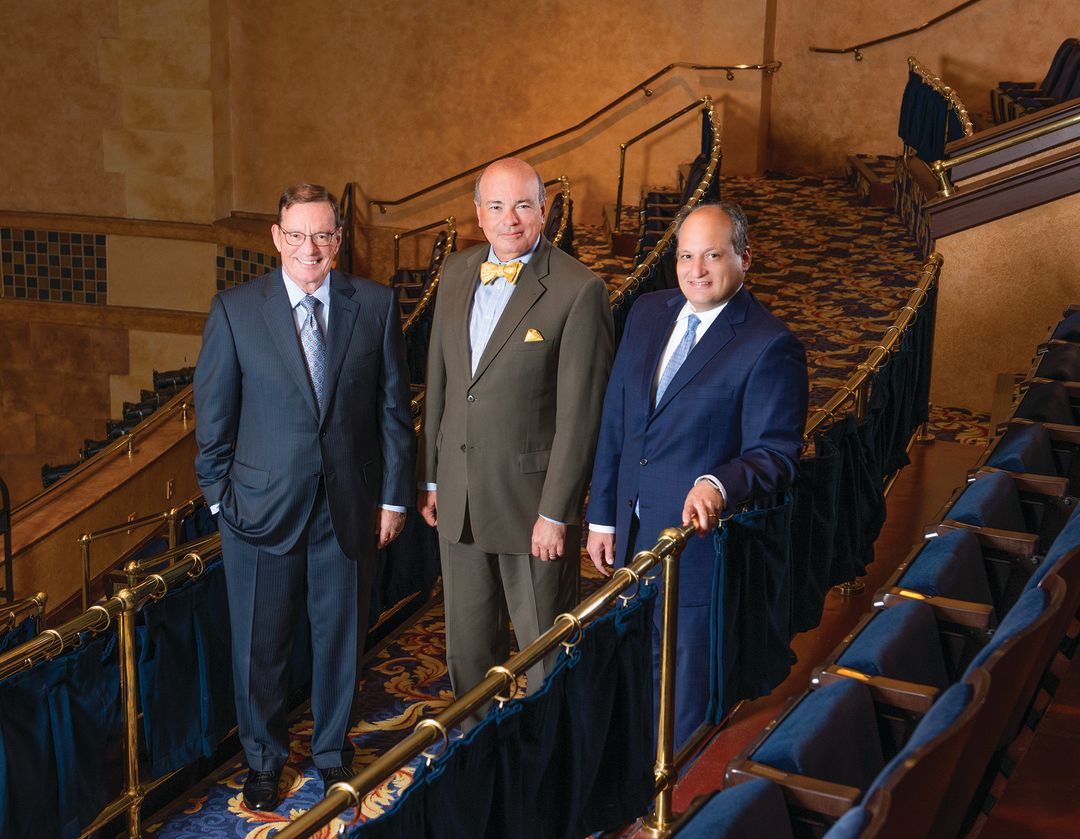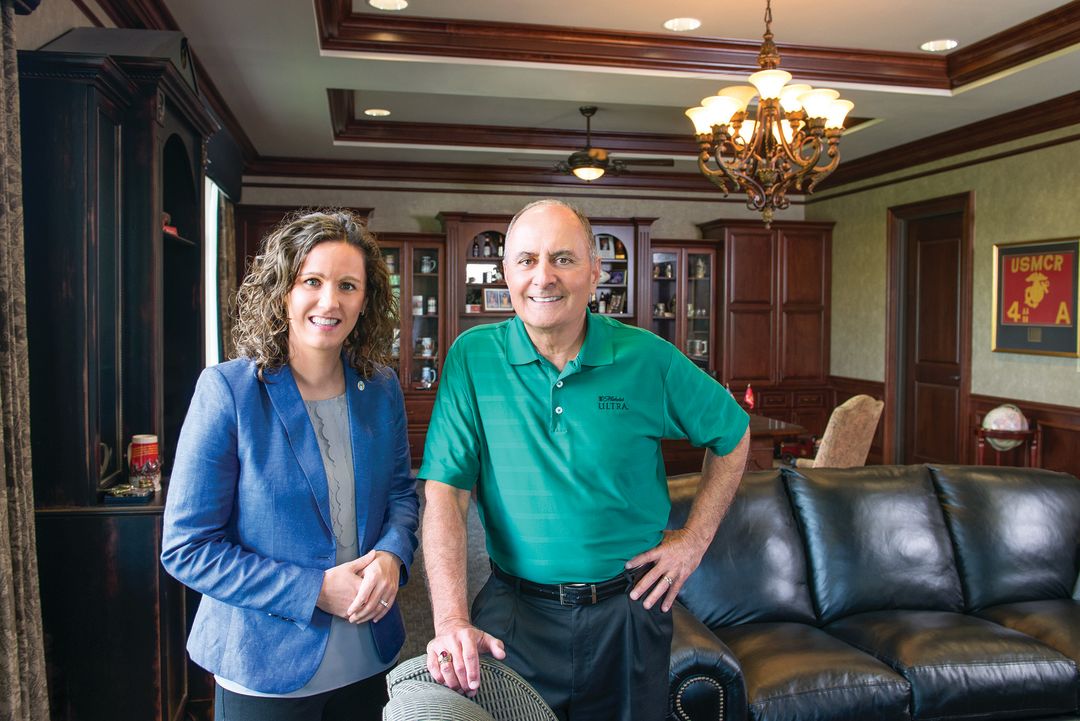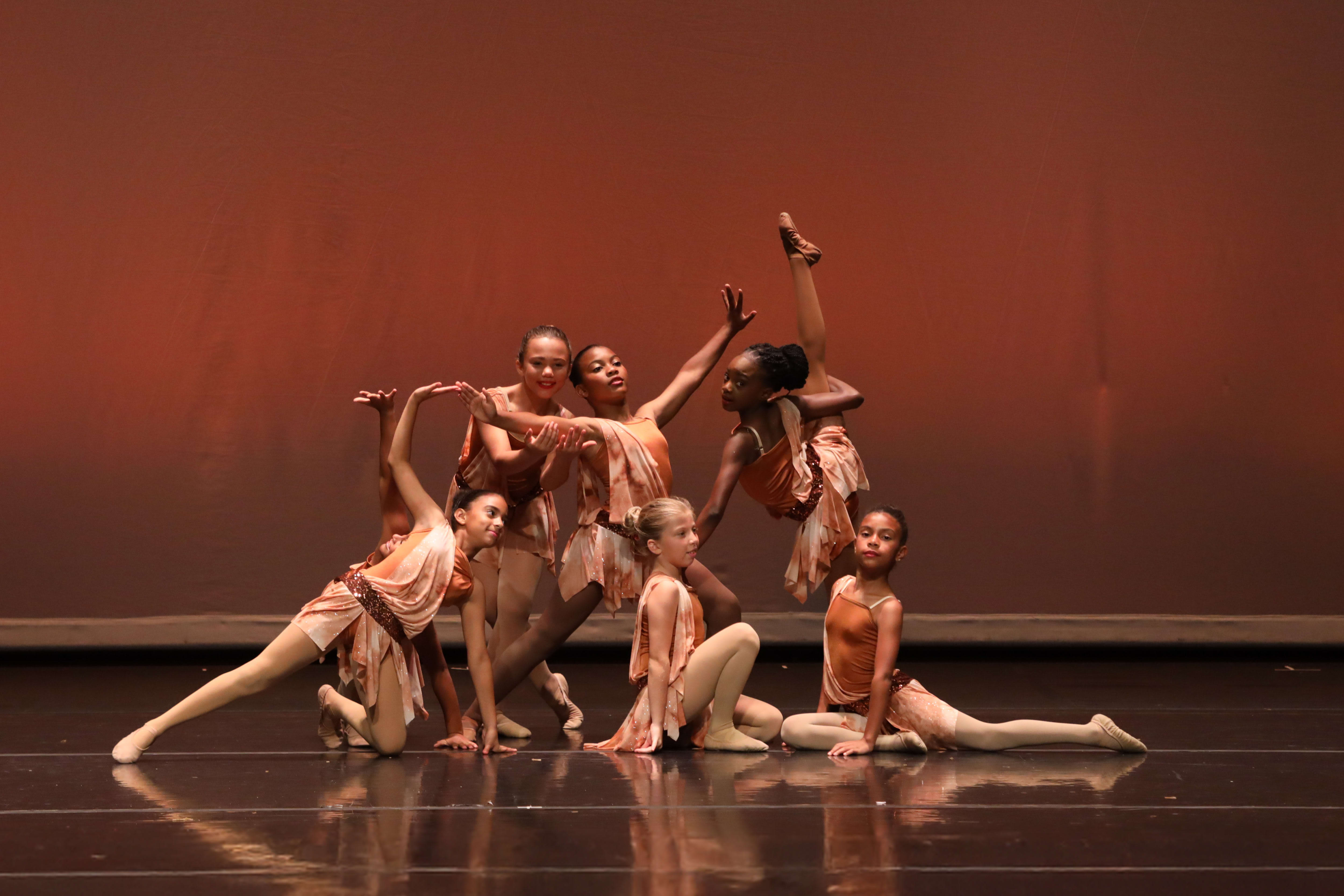How Three Companies Created Win-Win Partnerships with Nonprofits

Van Wezel Performing Arts Hall executive director Mary Bensel and Wilde Automotive Group’s marketing director Tracy Pierce
Corporate charitable giving in the United States increased to $18.55 billion in 2016, according to the National Philanthropic Trust. In our region, much of that philanthropy comes in the form of sponsorships. Businesses large and small link with nonprofit organizations for lots of reasons. Maybe the CEO has a personal passion for a cause, or an organization aligns with a business—an eyeglass manufacturer, for example, working with a group that distributes glasses to the underserved. Other times, a valued customer might serve on the board of a community theater.
Regardless of the rationale, the most successful corporate sponsorships provide meaningful benefits for all parties: the company, its customers, the nonprofit organization and ultimately, the community. Here are three local companies and their benefactors who are making the most of corporate sponsorships.
Wilde Lexus Sarasota and the Van Wezel
More than $400,000 in corporate sponsorships came to the city-owned Van Wezel Performing Arts Hall last year, says executive director Mary Bensel—a mix of cash and in-kind donations that includes hotel room nights for visiting artists, catering for special events and media advertising.
“Next to our subscribers, sponsors are the nearest and dearest to my heart,” says Bensel. She explains they make it possible for the hall to operate on 96 percent earned income—“unheard of” in the industry.
The Van Wezel’s longest-running corporate relationship is with Wilde Lexus Sarasota. Since 2001, in exchange for cash contributions, the automotive dealership has had title sponsorship of the hall’s Broadway series. (Bensel declined to quantify how much cash, out of concern that it might impact attracting other sponsors.)
In exchange, Wilde Lexus’ logo will go on the title page of programs at all 19 performances of eight Broadway touring productions this season. The Wilde logo also appears on the Van Wezel’s print and digital brochures, ticket envelopes, lobby banners, the video wall outside the box office and the electronic sign at 10th Street and Tamiami Trail. Wilde can display an automobile in front of the Van Wezel grounds on show days and at the hall’s preview party. On non-show days Wilde has the right to hold a car sale in the parking lot.
Bensel also recognizes Wilde Lexus in pre-show announcements; its reps occasionally appear on the Van Wezel’s monthly TV show; and if visiting celebrities consent to meet-and-greets, they are always invited.
Wilde Lexus reps get complimentary tickets to sponsored shows. If they want to buy additional tickets, they can go through a concierge service the Van Wezel offers. (Bensel says she even reaches out to producer contacts to help obtain Broadway tickets when the Wilde family visits New York.) They can entertain guests in the Founders Lounge, and the family has a designated parking space in the Van Wezel parking lot. The company also gets complimentary use of the hall during the season for, say, a holiday party or corporate meeting.
Tracie Pierce, the Wilde Automotive Group’s marketing director, says the Van Wezel partnership has burnished Wilde’s brand.
“Consumers can tell when philanthropy is genuine and when it is forced,” says Pierce. “Your philanthropy reflects your business and your personal interests. Staying true to yourself is key. At Wilde, we believe that the arts are a vital, life-affirming force in society and that all children should be given the opportunity to experience the arts in a personal way.”

Williams Parker attorney Robert “Doc” Benjamin, Opera executive director Richard Russell and Williams Parker attorney Jeff Troiano
Image: Barbara Banks
Williams Parker and the Sarasota Opera
The blue-chip law firm of Williams Parker Harrison Dietz & Getzen has partnered with the Sarasota Opera since firm co-founder Bill Harrison joined the Sarasota Opera’s board in 1992 at a client’s suggestion. Twenty-five years later, fellow attorney Robert “Doc” Benjamin serves as the opera company’s general counsel, and his colleague Jeff Troiano, an expert in wills, trusts and estates, is on call to help opera administrators and the board with any issues in that area. In addition, the law firm gives cash donations to sponsor the annual opera gala and opening night.
“Of course there’s some direct benefit; we get to attend these events and we are getting face time with opera donors,” says Troiano, who says many domors have become clients. “But the real reason it’s beneficial is we care about the community and want to see it grow. A successful arts community provides so many indirect benefits you can’t quantify.”
Having the law firm as a resource has been a great help, says Opera executive director Richard Russell. For example, the Sarasota Opera received legal advice on best practices as the board revised its by-laws and also on the appropriate documentation for legacy gifts.
Plus, he says, the lawyers “fully operate in the life of the opera; Jeff has participated in our young professionals group, for example. They’re great advocates for the opera in the community.”
Williams Parker encourages its attorneys to serve nonprofits as board counsel, says Benjamin. “If we’re going to take a role, it’s much better for our firm if we take an active role where we can use our legal expertise.” His advice to colleagues: “Find something you’re passionate about and spend your time there; you’re better at what you’re doing when you do that.”
That’s certainly been his experience with the Sarasota Opera. “It’s a labor of love,” says Benjamin—“as long as they don’t ask Jeff or me to sing any arias.”

Erin Minor, executive director of Harvest House, and Gold Coast Eagle Distributing president John Saputo
Image: Barbara Banks
Gold Coast Eagle Distributing and Wounded Warriors Family Support
Gold Coast Eagle Distributing president John Saputo is passionate about serving military veterans. A retired Marine colonel who saw three years of active duty and 28 years of reserve duty, he received the National Society of Daughters of the American Revolution’s highest award, the Medal of Honor, in 2014.
Through Gold Coast Eagle Distributing, Saputo supports the Marine Corps Scholarship Foundation, Wishes for Heroes, Wreaths Across America, Harvest House’s homeless veterans’ initiatives—“just about anything that comes to us that has to do with military,” says Gold Coast Eagle marketing director Hugh Shields.
This summer, Erin Minor, executive director of Harvest House, a housing and homeless services organization, contacted Saputo about supporting a fund-raising event to support transitional housing and social services for homeless vets. “John was overwhelmed when he learned what we do,” she says. “He told us, ‘Whatever you want to do, let us know.’ He opened his arms to raise awareness and funds for our program.”
Saputo says he throws his company’s support behind causes for military veterans because he has walked in their boots. “I can attest firsthand to the physical pain and mental stress a combat-trained serviceman endures—starting in boot camp, through each war, each battle, every miserable cold desert night and every sweltering desert day of heat,” he says.
Why support a veteran? “This 1 percent of our population that puts their blood and heartbeat on the line for the other 99 percent is all that stands between you and the protection of our American way of life,” says Saputo.
What to ask before you jump into a corporate sponsorship.
Businesses are bombarded with requests for corporate sponsorships. Fifteen years ago, says Gail Bower of Bower & Co. Consulting, a Philadelphia-based revenue strategist for nonprofits and businesses, companies used to show up with nothing more than a check and a message of good luck. No longer. Corporate partnerships are now about “an exchange of value,” she says, and must be strategic. Bower advises businesses to consider asking these questions before, during and after signing on as a corporate partner:
BEFORE YOU BEGIN
What are you trying to accomplish by sponsoring? Make sure you’re reaching an audience that fits your mission and is passionate about the cause of the nonprofit.
Are you prepared to invest for the longer term? It takes a few years to build up a name and traction and to figure out what works.
Have you defined your purpose? For example, why do you want to support the arts or a children’s charity?
What’s the return on investment you want to achieve?DURING THE NEGOTIATION
Is this nonprofit going to be a good partner? A good partner has a strong reputation and does what it says it’s going to do.
Is the nonprofit creative? You want more than a bronze, silver or gold designation in the program book.
Is the nonprofit allowing you to co-create? The nonprofit understands its event or initiative; the business understands its purpose. Both parties must work together to be effective.
Are you willing to invest additional resources if needed?
Are you willing to make the sponsorship a focal point in the company and engage multiple departments? Sales, creative, marketing, customer service and management should all be involved.
AFTER
Are you committed to review what worked and what didn’t? Both the nonprofit and the company should sit down to analyze the metrics and talk about how they can improve the partnership.



